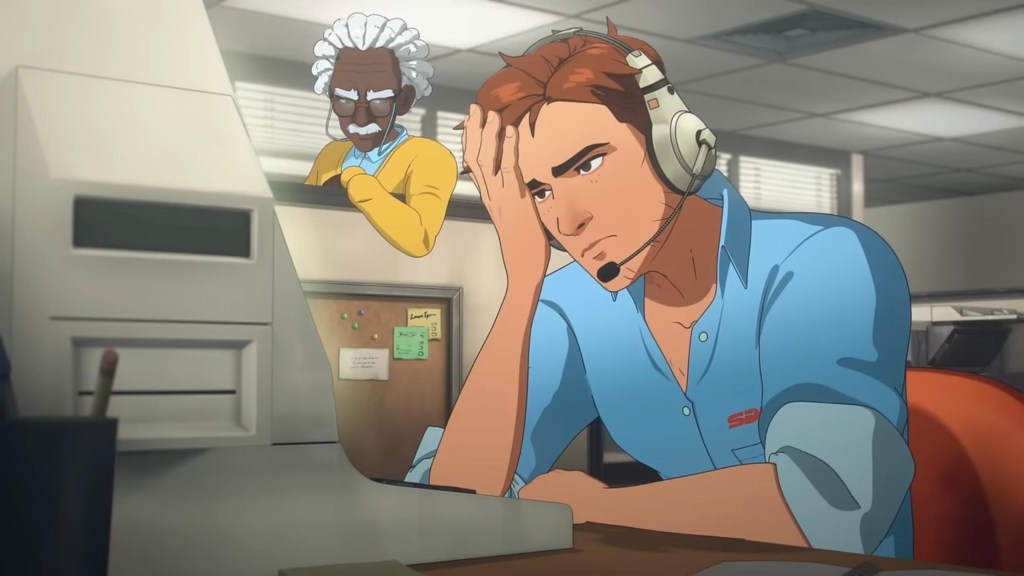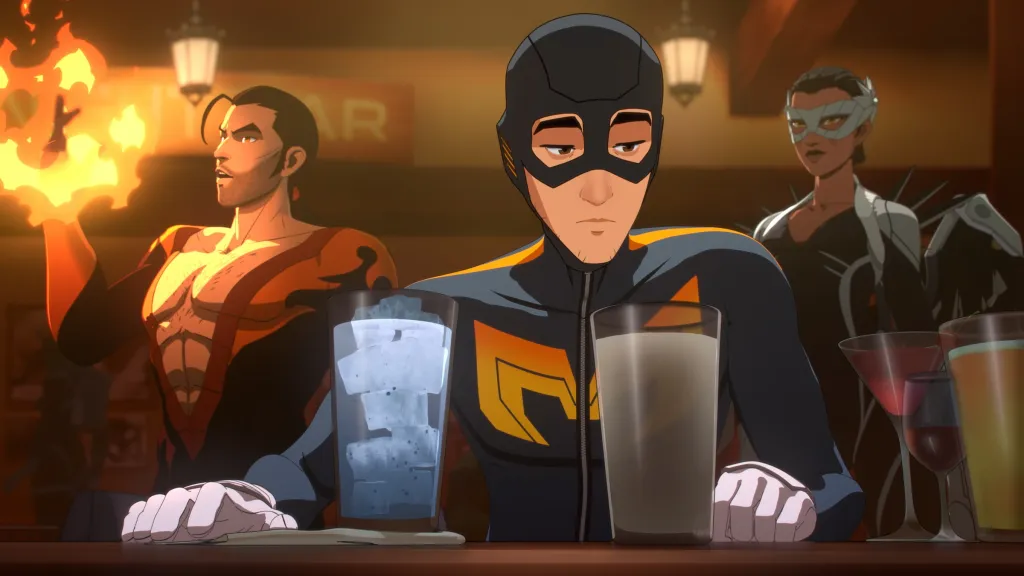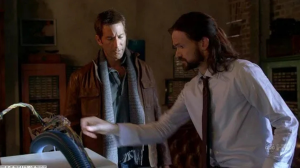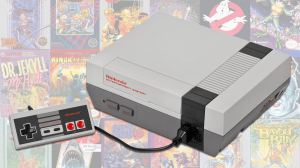Dispatch is one of the best superhero games out there and is the perfect remedy to so-called superhero fatigue. It is not lost upon me that I work for a website called ComicBook.com and am talking about “superhero fatigue”. It’s not that I am tired of superheroes, it’s that I am a bit tired of everything blurring together. I live for seeing iconic spandex-wearing characters with larger-than-life personas and abilities conquering problems or battling evil forces. I am a sucker for these kinds of stories, but when it comes to how these stories are being handled, I think we are getting too much of the same stuff.
Videos by ComicBook.com
While most people point to films and live-action television when it comes to this, I think some video games have fallen into this trap as well. A lot of superhero games are third-person action games with Arkham-esque combat, an array of gadgets that can be used, and big epic set pieces. I still enjoy games like Marvel’s Spider-Man, but this is a genre that can doesn’t have to fit into one box. There are so many more opportunities for storytelling and to me, Dispatch has proven that to be true.
Dispatch Is a Fresh New Take on the Superhero Genre

In case you’re unfamiliar, Dispatch follows a man named Robert Robertson, a down-on-his-luck ex-superhero looking for some kind of purpose. He’s eventually recruited to work as a superhero dispatcher at a company known as SDN, a sort of police department for superheroes. The problem is, Robertson’s team isn’t filled with the likes of Superman, Green Lantern, or Wonder Woman; it’s filled with supervillains trying to turn over a new leaf, and they’re not very competent or kind.
Although there is some action, it’s pretty small-scale and you’re typically observing it through security cameras rather than being at the center of it. Dispatch is made by ex-Telltale staff, so their strength lies in strong characters and great writing, not big and expensive set pieces. While there is room for some of that to happen by the end of the game’s episodic rollout, the bulk of the game will have been spent just… talking to people.
Developer AdHoc leans into its strengths and creates a sort of mundane workplace comedy, not unlike The Office or Brooklyn Nine-Nine but with superpowers. Superhero shenanigans are the norm, and therefore, a water-vomiting janitor isn’t really unusual (though it is still deemed gross). It’s an ordinary world of extraordinary people, and that is what makes it so charming. This is emphasized even more by the fact that Dispatch‘s cast is largely comprised of a ragtag team of villains-turned-maybe-heroes.

Many great superhero stories often inspire the viewer, reader, or player, and I think Dispatch does a great job of that. Should the player choose not to beat down on the Z Team and focus on uplifting them, I think there’s a powerful message at the center of this story. One about working together, believing in yourself, and being your own supporter who empowers you. Robertson compares the team to a phoenix at one point, using the metaphor to try and convince them to take their poor decisions and rebirth it into something new and meaningful.
However, what I think really makes Dispatch stand out more than anything else in this genre is its gameplay. In addition to making decisions and engaging in dialogue options, the core of Dispatch is about micromanaging superheroes. You sit at a computer which has a map of the city, and various crimes or events will pop up. Some of these are as simple as an old lady needing help walking across the street or a thieving kid who needs a pep talk, others are a bit more heroic and involve someone beating a villain or saving people from a disastrous event.
It’s on you to figure out who is the best person to send to each crime based on their own individual powers and strengths. Some are charismatic and intelligent, but lack in terms of raw power, while others would totally repulse the average civilian in conversation and are only useful for brute force. Sending someone on a mission fit for them will allow them to eventually level up and grant you points that can make them more well-rounded or proficient at certain skills.

This unique gameplay requires a lot of thought, especially as crimes pop up rapidly. If you overextend yourself and send too many heroes out at a time, you can end up without someone to stop an important crime. It’s an extremely smart approach to a superhero game and one of the most creative takes on the genre I’ve seen.
All of this goes to show there are plenty of ways to make a compelling superhero game without it being a third-person Arkham clone. I don’t necessarily need another game like Dispatch, but I would hope that its success inspires other developers to take more creative approaches to the genre. Could there be a world where there’s a Batman game that revolves more around solving crimes via intricate investigations, not unlike LA Noire? Perhaps!
Ultimately, I am really in love with Dispatch. This will undoubtedly be one of the best games I’ve played this year, and I recommend anyone with a PS5 or PC give it a shot. I hope other creatives see it as a prime example of ways to tell a superhero story without succumbing to tiresome formulas. Given that Dispatch has been showered in praise and has sold a million copies in ten days and seems to get more popular by the day, it’s a game that others could learn a lot from.








